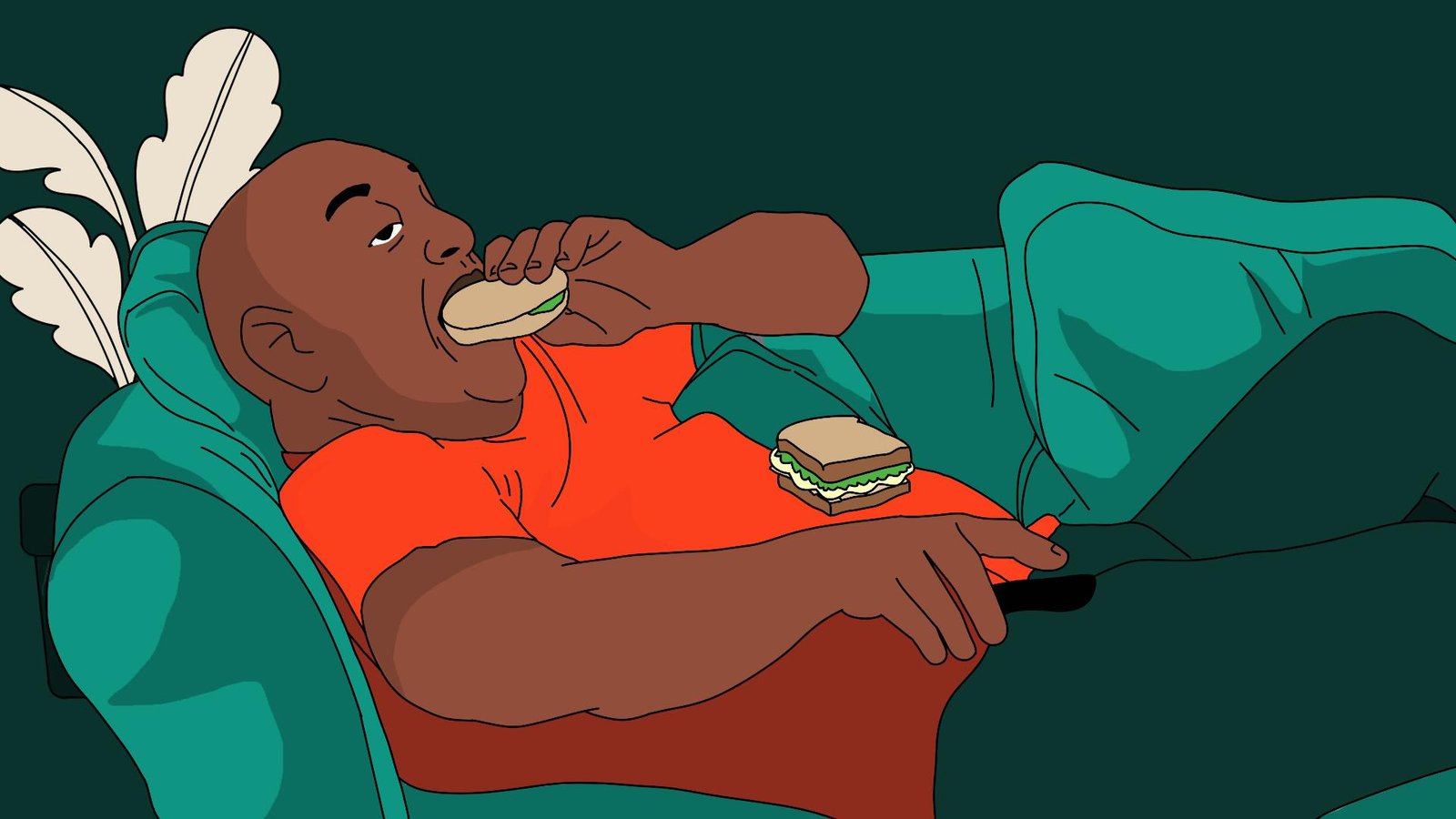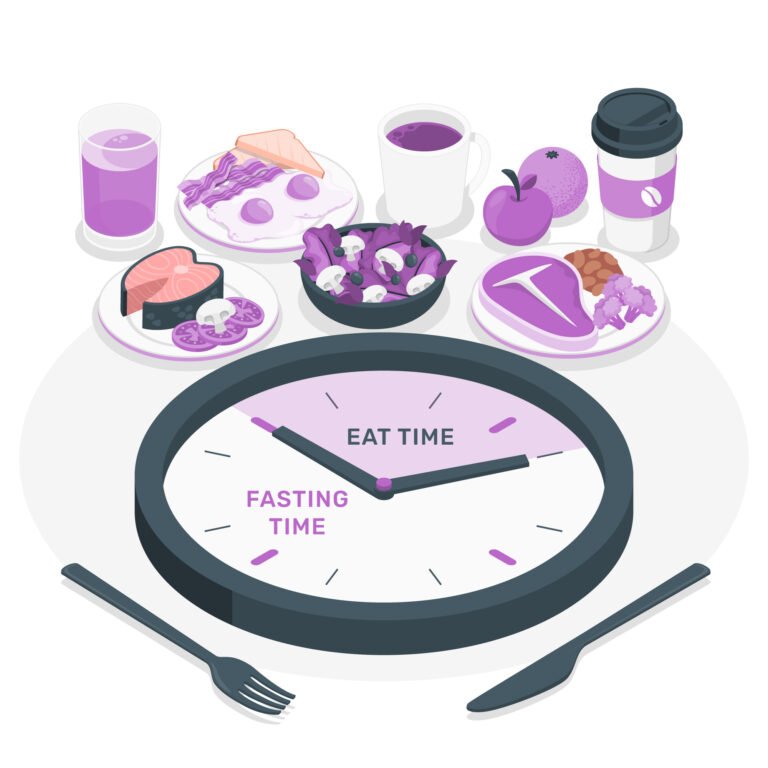
Night Eating
It’s widely debated when one should stop eating for the day, influenced by factors such as appetite, habits, culture, work schedules, personal preferences, and social settings. For many, the main concern is whether eating late contributes to weight gain. Opinions on the optimal time to stop eating vary, prompting questions about the scientific basis behind these recommendations. This article explores the best time to cease eating and the potential health impacts of late-day eating.
When is it recommended to stop eating?
Recent scientific research has shed light on the timing of meal intake and its profound effects on health. This means it’s not just about what you eat but also when you eat, significantly impacting your weight and overall health. Though there’s no definitive time when you should stop eating at night, several approaches may help you determine a suitable eating window:
- Circadian Rhythm: Your body’s natural 24-hour clock, or circadian rhythm, regulates functions like sleep-wake cycles and can influence the optimal time to eat. Eating within an 8–12 hour window during daylight hours aligns with your circadian rhythm. This approach supports efficient calorie processing and may help prevent weight gain.
- Intermittent Fasting: This method involves eating within a specific window, typically 8–12 hours, and skipping food during the day’s remaining hours. Intermittent fasting has been associated with benefits such as improved blood sugar levels, cholesterol profiles, reduced body fat, and inflammation. Some variations of intermittent fasting recommend skipping breakfast and consuming most calories later in the day. However, studies suggest that eating a larger breakfast and a smaller evening meal could enhance blood sugar control, reduce body fat, and reduce hunger. Individual health conditions and lifestyle factors may influence the effectiveness of intermittent fasting.
These strategies reflect current research and trends in dietary approaches to optimise health and weight management. Adjusting your eating habits to align with your body’s natural rhythms and considering intermittent fasting can benefit you, but consulting with a healthcare professional can help determine the best approach for your needs.
What are the effects of eating late at night?
Eating late at night can potentially impact various aspects of health and well-being, although more research is needed in each of these areas to understand the implications fully:
- Weight Gain: There is inconclusive evidence regarding whether eating late at night directly contributes to weight gain. However, it is theorised that the body’s ability to burn calories may be higher in the morning and lower in the evening. Limiting food intake late at night could indirectly reduce overall calorie intake and prevent weight gain.
- Metabolic Syndrome: Eating late at night or over a prolonged eating window may increase the risk of metabolic syndrome. Metabolic syndrome is characterised by insulin resistance, obesity, high blood pressure, and high cholesterol levels, all of which contribute to increased risk of cardiovascular disease and type 2 diabetes.
- Reflux: Consuming a large meal late at night and then lying down to sleep shortly afterwards can increase the risk of acid reflux. Acid reflux occurs when stomach acid flows back into the oesophagus, causing a burning sensation in the chest. Over time, this condition may lead to gastroesophageal reflux disease (GERD), which can have long-term implications for oesophagal health.
- Poor Food Choices: Late-night eating may lead to poor choices, such as high-calorie snacks or quick, unhealthy foods like chips, kelewele, or instant noodles (indomie). These foods are often high in unhealthy fats, sodium, and calories, contributing to weight gain, elevated blood pressure, and other health issues.
While these potential risks highlight the importance of mindful eating habits, individual responses to late-night eating can vary. When determining the best eating schedule, it’s essential to consider personal habits, preferences, and health conditions. Consulting with a healthcare professional or nutritionist can provide personalised guidance on optimising eating habits to support overall health and well-being.
What are some tips to stop frequent night eating?
Here are some practical strategies to help avoid late-night eating and take control of your eating habits:
- Enjoy Regular Meals: Eating balanced, filling meals throughout the day, mainly those rich in fibre and protein, can reduce the urge to snack late at night.
- Avoid Keeping Snacks at Home: Keep tempting snacks out of sight, or avoid having them at home altogether. Stock your pantry with healthier options like nuts, fruits, and yoghurt that are satisfying but not too heavy.
- Brush Your Teeth: Brushing your teeth signals to your body that you’re done eating for the day. Plus, many foods don’t taste as appealing after brushing, which can discourage late-night snacking.
- Drink Herbal Tea: Instead of reaching for snacks, develop healthier evening habits like brewing a cup of calming herbal tea, such as cinnamon tea. This can provide comfort without adding unnecessary calories.
- Go to Sleep Early: Going to bed early reduces the time available for late-night snacking. Additionally, inadequate sleep can increase hunger hormone levels, potentially leading to increased food intake. Aim for 7–8 hours of sleep per night to support overall health and reduce the urge to eat late at night.




